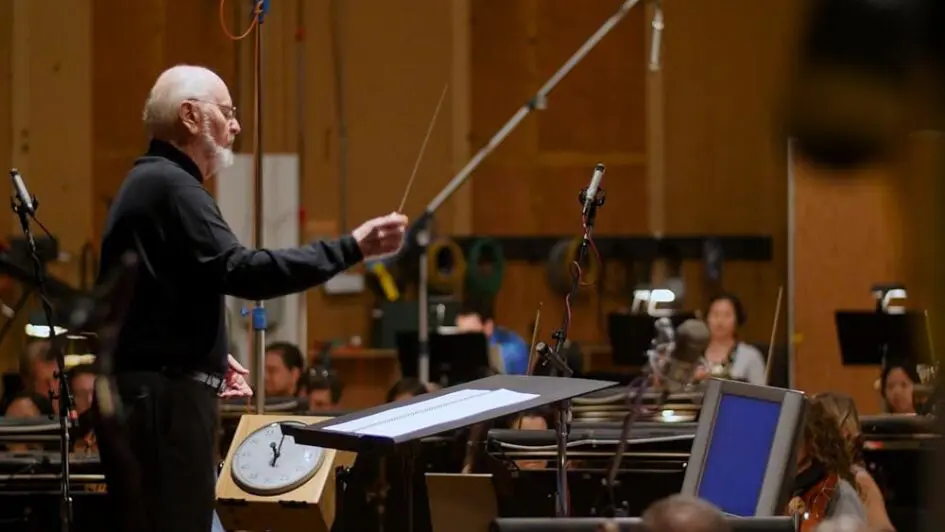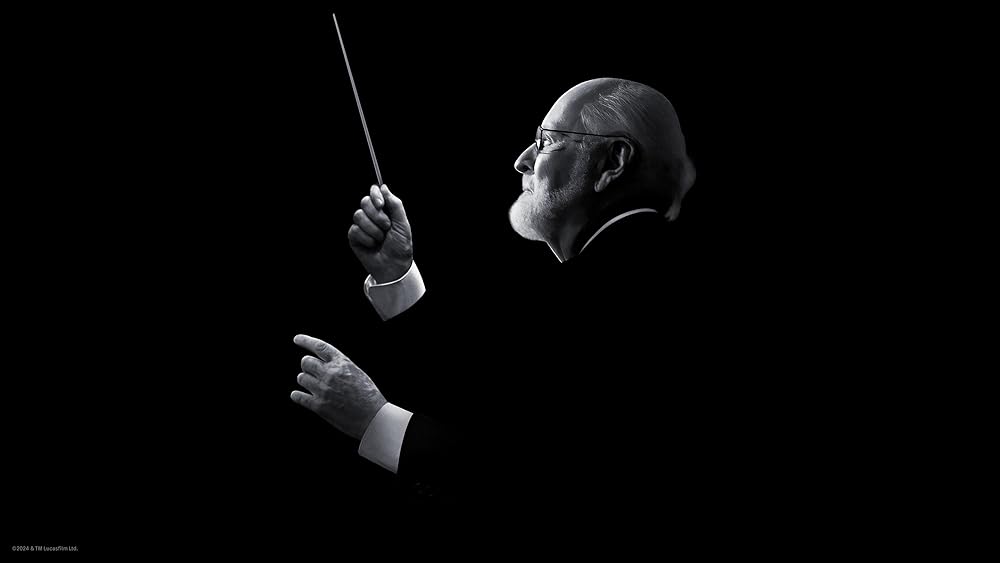As a Child of the ’80s, I was lucky enough to grow up with John Williams. During my teen years, I visited the small-town movie theater just about every Friday night. Unbeknownst to me, John Williams was also there, with me. He might as well have been my babysitter.
The genius of this man was not fully realized until he reached his 40s, but learning about his past only makes his present-day accomplishments that much more meaningful. Music by John Williams is a documentary that celebrates his life, as well as the limitless range of his work.
Johnny (as he was known for quite some time) was born from a pair of musicians and unsurprisingly grew up within a family of musicians. Per his parents, playing the piano was a constant for him, his sister and brothers. He became interested in instrumentation at a young age and only ever intended to play piano professionally when he grew up.
After serving four years in the Northeast Air Command Band of the Air Force, he released a jazz album, but kind of lucked into scoring movies. It’s all about who you know, you know?
Ironically, Williams is not a movie buff or a frequent visitor of movie theaters throughout his life, but his father played in a variety of studio orchestras for feature films in Los Angeles. Through 68 years, the man has dedicated much of his life for the big and small screens, proving to be incredibly versatile at writing for different genres.
He is a legendary composer known for his work in Jaws, Superman, Close Encounters of the Third Kind, Star Wars, Harry Potter, Indiana Jones and Jurassic Park franchises, but also E.T. The Extra-Terrestrial, Peter Gunn and Gilligan’s Island, too, among so many others. It’s safe to say that in some small part, John Williams was there, just about every step of the way, during my formative years, whether I knew it or not.
“He’s more than just a composer; he’s a brilliant guy who really understands the relationship between pictures and sound.”
Celebrating his greatness never gets old; this is the kind of movie that Lucasfilm needs to make more often! Filmmakers, musicians and other composers sing the praises of Williams, but the best of the best come from the comments of Steven Spielberg and George Lucas. Honestly, I could watch these two men discuss their work with Williams throughout the years and never get bored. If they were the only ones featured on this film, I would be satisfied.
If only the three might consider co-creating a streaming miniseries, where they discuss the many aspects of filmmaking together, in their later years. It has Disney Plus written all over it!
Back to this movie, which is incredible. To understand Williams is to learn about his process. For 60-plus years he has worked alone, making sacrifices while expressing himself through music. Initially, John was given the advice to work symphonies, not “commercial work,” but instead found himself knee-deep in Hollywood. As a versatile artist, he’s been an arranger, orchestrator, music director and conductor in musicals, and to this day, he still writes his music by hand, instead of on a computer, with pencil and paper.
He defines franchise films with his music, having almost singlehandedly kept thematic big-screen scores alive during a downward trend of pop-music soundtracks. Each of his scores is complicated, different and brilliant as it could possibly be from the other. John’s greatness has been underrepresented by the five Academy Awards he has won, but not mentioned in this film are the 26 Grammy Awards, seven BAFTA Awards, three Emmys and four Golden Globes he has also won. His brilliance is inescapable.
“He is the solution, so many times…”
Williams must constantly work and apparently loves staying busy. The only downturn of his career that is presented here happened with his bitter breakup with the Boston Pops, as film music was looked down upon by the concert musicians. The invisible walls dividing film music, concert music, baroque music and contemporary music was real, but it seems that Williams eventually helped shatter those barriers.
“He’s the perfect marriage between old classics and modern pop.”
I strongly agree with the presented statement that the soundtrack is only half of a movie, and Hollywood has reaped the rewards of Williams’ great contributions. I am in awe at the amount of groundbreaking music this man has constantly cranked out throughout his storied career. At different points in my life, I’ve seen a variety of orchestras perform Williams’ music and I even attended the L.A. performance of Star Wars in Concert (It was so great!). While I don’t own very many movie soundtracks these days — and I listen to even fewer of them as the years pass by — John Williams is very prominent in both my physical and digital collections.
This documentary reminded me of that but also informed me of his contributions to the NBC Nightly News, the NBC Sunday Night Football theme, as well as the modern-day Olympic theme! Many of his contributions are inspirational, and it’s safe to say that John Williams creates emotional music. I still get chills hearing his music performed at different live events.
It is simply incredible for a man to have had such an unplanned progression of his career. He’s always had a great ear for music, and he definitely needs to be celebrated. I really don’t know why this feature film didn’t receive more of a promotional campaign and was quickly shuttled off to a streaming service, as his greatness deserves to be seen — and heard — on the big screen, naturally.
“Music is enough for a lifetime. But a lifetime is not enough for music.”

